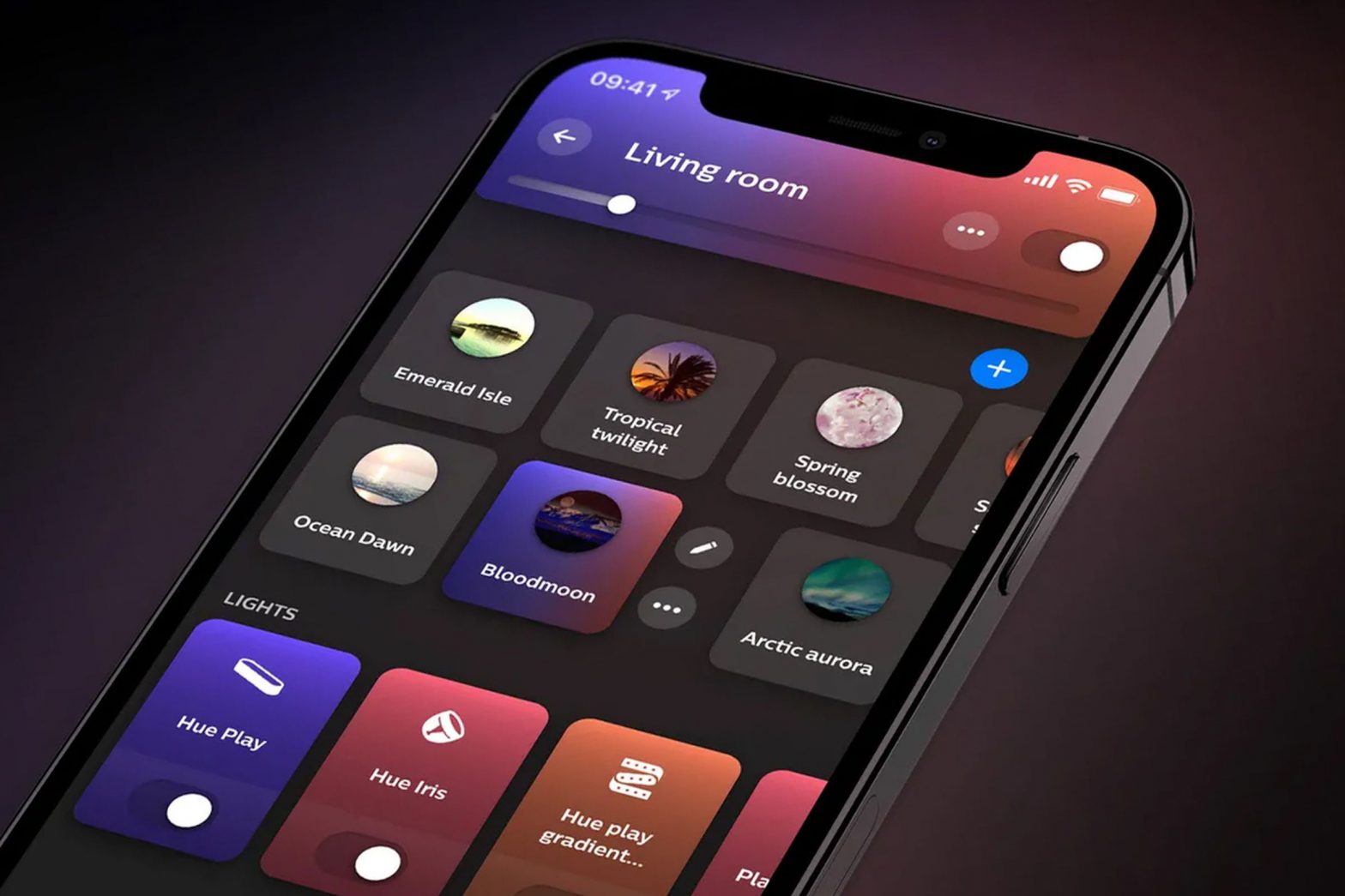/
The AR preview is only available on LiDAR-equipped Apple devices, but all app users will get some new features.
Share this story
If you buy something from a Verge link, Vox Media may earn a commission. See our ethics statement.
:format(webp)/cdn.vox-cdn.com/uploads/chorus_asset/file/25662572/hue_app1.jpg)
A recent update to the Philips Hue app has introduced several new features, including an augmented reality and interactive 3D modeling tool to show you how Hue products will look in your space. The update, spotted by Hueblog, also includes updates like a “do not disturb” option for motion sensors.
Version 5.27 of the Hue app is coming to iOS, iPadOS, and Android. But the standout AR feature is limited to iPhone Pro and iPad Pro models with a LiDAR sensor, which Apple introduced on the iPhone 12 Pro in 2020. Found in the app’s Explore tab, it lets you test 12 different Philips Hue products including the Hue Twilight sunrise lamp, the Hue Dymera wall light that shines both up and down, and the Hue Infuse ceiling light.
The AR preview wasn’t completely polished when we checked it out, occasionally letting a lamp float around the room. But unlike many preview features that simply drop a 3D object on a background, the virtual Hue products can show how a room will look with different lighting scenes, effects, and colors. The app can even simulate how a lamp would look in a darkened room at night compared to the middle of the day. In our experience it’s not a perfect simulation of how one of these lighting products could change the appearance or mood of a room, but it does give a good idea of how these products will look in your home.
The new do not disturb option — an experimental feature introduced through Hue Labs before it was shut down last June — is now a permanent feature in the Hue app across all platforms. It will set Hue products’ motion and security sensors to only react to movement while all lights in a room or zone are turned off, and you can schedule it for specific times of the day.
Some homes rely on Hue sensors to automatically turn lights on and off at night, automating the process for trips to the bathroom, for example. But the new do not disturb option will ensure that if a sensor-connected light is turned on manually, it will remain on, no matter what its sensor is detecting.
Lastly, the update now allows Hue switches to be programmed to start or stop a timer, turning lights or scenes on or off when it completes. You can also start and stop the “Mimic presence automation,” which turns lights on and off at different intervals to simulate the presence of someone in the house while you’re away.
